An unprecedented international coalition of people accused of “blasphemy” in their home countries has called on the “people of Ireland” to vote to remove the “blasphemy” provision in next month’s constitutional referendum.
The letter, published today in the Sunday Times Irish edition, implores Ireland to vote for repeal, saying: “You have the opportunity to send a clear signal to the global family of nations that “blasphemy” laws contravene the human rights to freedom of thought and freedom of expression and should be repealed.”

Stephen Fry was accused last year of ‘blasphemy’ in Ireland over a TV interview
The 23 signatories come from across 12 countries, all of which have some variation of blasphemy law on statute. They are: Bangladesh, Egypt, Greece, India, Indonesia, Iraq, Morocco, Nigeria, Pakistan, Palestine, Saudi Arabia, and Sudan.
An assortment of human rights campaigners, writers, and social media activists, the signatories to the letter have all been “threatened with fines, imprisonment, torture, or death” as a result of “blasphemy” prosecutions or extremist threats. They write: “In some cases, our friends, family, and colleagues have been brutally murdered.”
The letter acknowledges that their concerns may seem far removed from Ireland’s own 2009 “blasphemy” law, under which there has never been a successful prosecution. However, the signatories argue that championing human rights often puts them in opposition to particular religious beliefs and practices in countries where “blasphemy” laws are deeply entrenched and harshly enforced. “The existence of blasphemy laws in European democracies like yours gives cover and support to the laws under which we are persecuted around the world”, they argue. “At the same time it lends false legitimacy to the extremists who claim that “blasphemy” is a sin which warrants intimidation and murder.”
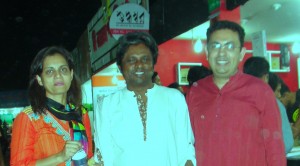
Ahmedur Rashid Chowdhury (centre) at his publishing house book stall at the Dhaka International Book Fair, 26 February 2015. This is the night Avijit Roy (right) was murdered, and Roy’s wife Rafida Ahmed (left) was seriously injured. Chowdhury was also nearly killed later that year. Chowdhury and Rafida are two of the signatories to the open letter.
Most of the signatories have suffered some threat of violence in relation to their “blasphemy” accusations. Publisher Ahmedur Rashid Chowdhury narrowly survived an assassination attempt at his publishing house; another publisher Faisal Arefin Dipon was killed on the same day in an apparently coordinated attack. Signatory Rafida Bonya Ahmed was attacked alongside her husband, Avijit Roy, in another targeted assassination; Roy, an author of books on science, human rights and atheism was killed in the attack.
Signatories including Alber Saber from Egypt, Asif Mohiuddin from Bangladesh, Alexander Aan from Indonesia, Waleed Al-Housseini from Palestine, and Amed Sherwan from Iraq were prosecuted for blasphemy or “insulting religion” and have spent time in jail.
Fauzia Ilyas, from Pakistan, became an atheist after being coercively married to an older man. She eventually found fellow atheists online, but had to flee the country after her identity was exposed.
One signatory from Nigeria, Mubarak Bala, was accused of “blasphemy” and “apostasy” for openly professing atheism, and was falsely committed in a psychiatric institute by his Islamist father, and only freed after an international outcry and media coverage.

Gulalai Ismail turned the tables on her ‘blasphemy’ accuser, taking them to court for incitement to violence. Accusations of ‘blasphemy’ in Pakistan frequently lead to life in prison, or mob killings
Gulalai Ismail from Pakistan has run an organization for women’s education and dedicated to empowering women’s lives in her home province. For this work she has been accused of working against Islamic belief and therefore committing “blasphemy”. In a move almost unprecedented in Pakistan she has taken her blasphemy-accusers to court for incitement to violence.
The signatories, who are predominantly humanists or non-religious but from majority-Muslim countries, dismiss any idea that the Irish blasphemy law is necessary for the protection of minorities: ““Blasphemy” laws are not hate speech laws and can never work that way. That’s because “blasphemy” laws always potentially criminalize legitimate free expression about religious beliefs, practices, institutions or representatives; expression which is often morally necessary.”
Last month, the newly-elected Prime Minister of Pakistan, Imran Khan, vowed to “defend” the country’s blasphemy law, which human rights groups routinely describe as one of the most abusive and discriminatory blasphemy laws in the world. He also pledged to revive efforts by member states of the Organisation of Islamic Cooperation to establish “blasphemy” as a crime under international law.
Gary McLelland, Chief Executive of IHEU, said: “These are the voices that must be heard in Ireland’s referendum debate. Read what they have to say and do not be complacent: come out and vote to end blasphemy law in Ireland.
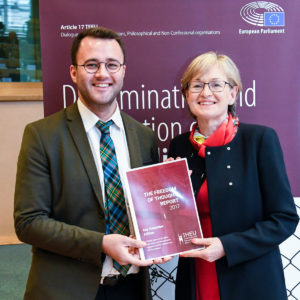
IHEU Chief Executive Gary McLelland presents the IHEU Freedom of Thought Report to Mairead Mcguinness, Vice-president of the European Parliament, at a meeting earlier this year, where he urged Europe to take a stand against ‘blasphemy’ law
“These are the real victims of so-called ‘blasphemy’ laws: not people who happen to see or hear something they don’t like, but people who are accused, abused, put on trial, imprisoned, threatened or attacked, for speaking their minds. They are simply people speaking about human rights and humanist values, or promoting science or democratic secularism, or challenging harmful beliefs and practices. Robbing people of free expression is what blasphemy laws actually mean around the world. That’s how the Irish blasphemy law would be used if it was being used, that’s why it cannot be used, yet it tacitly supports all those similar laws that are harshly enforced around the world. And that’s why it must be abolished.”
The letter was organized in cooperation with the International Humanist and Ethical Union (IHEU) which also coordinates the End Blasphemy Laws campaign, and was part of the successful opposition against “defamation of religion” resolutions at the United Nations between 2005 and 2011.
The letter
To the good people of Ireland,
We are human rights activists, writers, and campaigners for equality, and committed to freedom and peace. We have all been threatened with fines, imprisonment, torture, or death for “blasphemy” in our countries. In some cases, our friends, family, and colleagues have been brutally murdered. We know that our plight may seem distant to your daily concerns but it is linked.
It makes all our work that bit more difficult when western democratic countries maintain laws that criminalize debate, satire and criticism concerning religious beliefs. The existence of blasphemy laws in European democracies like yours gives cover and support to the laws under which we are persecuted around the world. At the same time it lends false legitimacy to the extremists who claim that “blasphemy” is a sin which warrants intimidation and murder.
“Blasphemy” laws are not hate speech laws and can never work that way. That’s because “blasphemy” laws always potentially criminalize legitimate free expression about religious beliefs, practices, institutions or representatives; expression which is often morally necessary.
You have the opportunity to send a clear signal to the global family of nations that “blasphemy” laws contravene the human rights to freedom of thought and freedom of expression and should be repealed.
We appeal to you from our hearts to seize this opportunity, in solidarity with all those people from around the world – religious and non-religious alike – who are persecuted under “blasphemy” accusations.
Signatories:
Alexander Aan, Indonesia
Bonya Ahmed, Bangladesh (now United States)
Choity Ahmed, Bangladesh (now Germany)
Rana Ahmed, Saudi Arabia (now Germany)
Waleed Al-Housseini, Palestine (now France)
Mubarak Bala, Nigeria
Ahmedur Rashid Chowdhury, Bangladesh (now Norway)
Kacem El Ghazzali, Morocco (now Switzerland)
Ensaf Haidar, Saudi Arabia (now Canada)
Fauzia Ilyas, Pakistan (now Netherlands)
Gulalai Ismail, Pakistan
Siti Kasim, Malaysia
Azam Khan, Bangladesh
Filippos Loizos, Greece
Asif Mohiuddin, Bangladesh (now Germany)
Taslima Nasrin, Bangladesh (now India)
Alber Saber, Egypt (now abroad)
Mohamed Salih, Sudan (now Uganda)
Prithu Sanyal, Bangladesh (now Germany)
R A Sattar, Pakistan (now New Zealand)
Amed Sherwan, Iraq (now Germany)
Thessalonika Pride, organizing committee, Greece
Malaysian Atheists and Secular Humanists, Malaysia
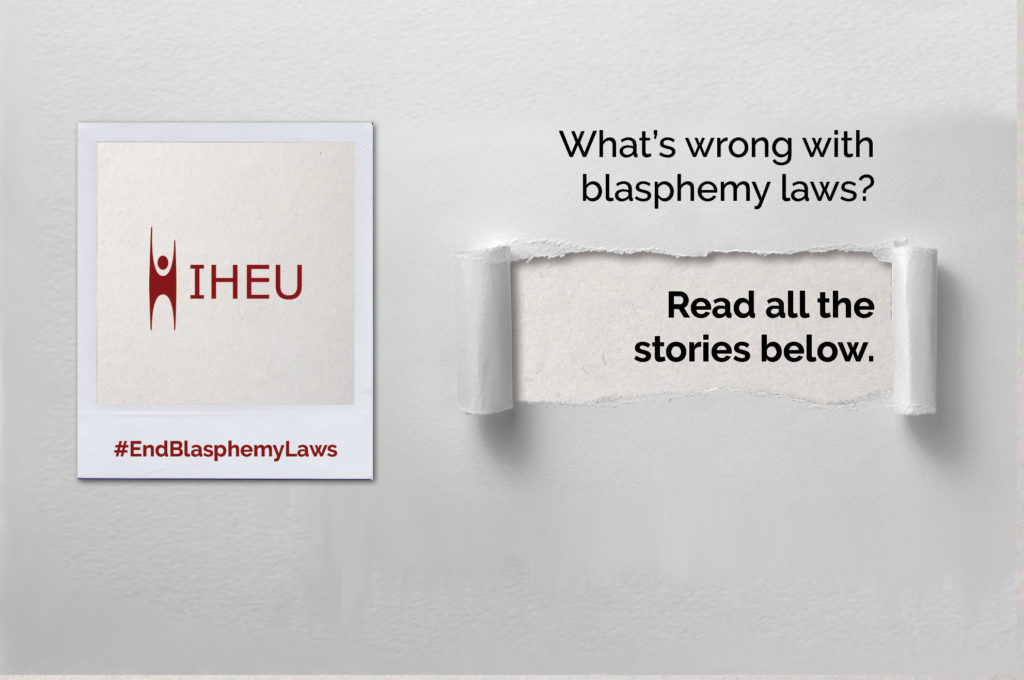
 |
Alexander Aan, Indonesia, was charged with “blasphemy” and “calling for others to embrace atheism” after posting messages to an atheist social media group, for example asking “If God exists, why do bad things happen?”. After his identity was exposed, Aan was attacked by a mob on his way to work. He was ultimately convicted for “inciting religious hatred or hostility” and spent two years in jail. |
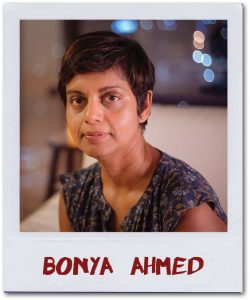 |
Bonya Ahmed, Bangladesh (now United States), is a writer and academic. Her husband the author Avijit Roy was assassinated by members of an Islamist militant group on a visit back to their home country in 2015. Roy was targeted for supposed “insult to religion” in his books and blogs. Bonya was also seriously injured in the attack, but now continues to campaign for freedom of expression and against militant extremism. |
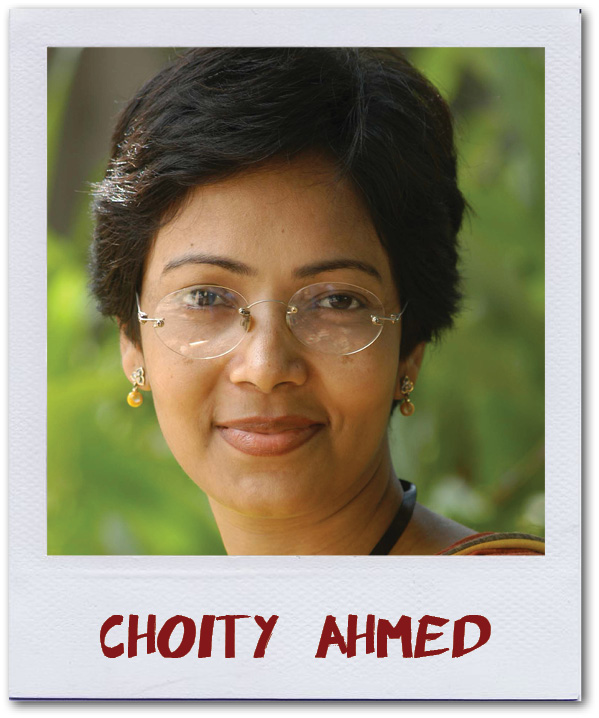 |
Choity Ahmed, Bangladesh (now Sweden), is an atheist, humanist, and feminist writer from Bangladesh. Due to her secular writings against the religious prejudice and patriarchal society, she faced threats of assassination from Islamic extremist terrorist groups. She now lives under refugee protection in Sweden. |
 |
Rana Ahmed, Saudi Arabia (now Germany), is an atheist and women’s rights campaigner who has said that being forced to wear restrictive veiling “destroyed her childhood”. When she realised she was an atheist she sought asylum in Germany. The “promotion of atheist thought” is define as terrorism in Saudi Arabia, and apostasy or blasphemy are punishable by death. Rana now acts as an advisor to the Raif Badawi Foundation. |
 |
Waleed Al-Housseini, Palestine (now France), ran a popular and prominent personal blog, with posts satirizing religion and detailing “Why I left Islam”. He was exposed after apparently being spied on at the internet cafe he worked from, and was charged with blasphemy. He spent 10 months in jail. After his release he continued to be harassed and intermittently detained by the authorities, including an alleged incidence of torture. |
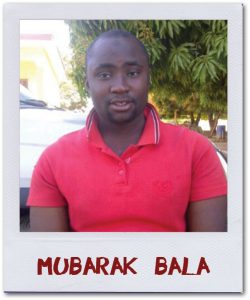 |
Mubarak Bala, Nigeria, was forcibly restrained and committed to a psychiatric hospital in Kano state after speaking publicly about being an atheist. Solely on the basis of expressing atheism and at the command of his father, a high-ranking member of the local religious police, Mubarak Bala was detained for several days and medicated against his will. An international campaign by humanists and atheists led to media coverage both internationally and locally, following which Bala was released. His security is still at risk in the country. |
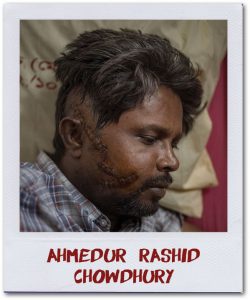 |
Ahmedur Rashid Chowdhury, Bangladesh (now Norway), ran a publishing house in Dhaka, known for publishing books including works on science, religion, and secularism. In October 2015 he was targeted for assassination by an Islamist militant group armed with machetes and a gun, narrowly escaping death. His friend and fellow publisher Faisal Arefin Dipon was killed in another attack on the same day. |
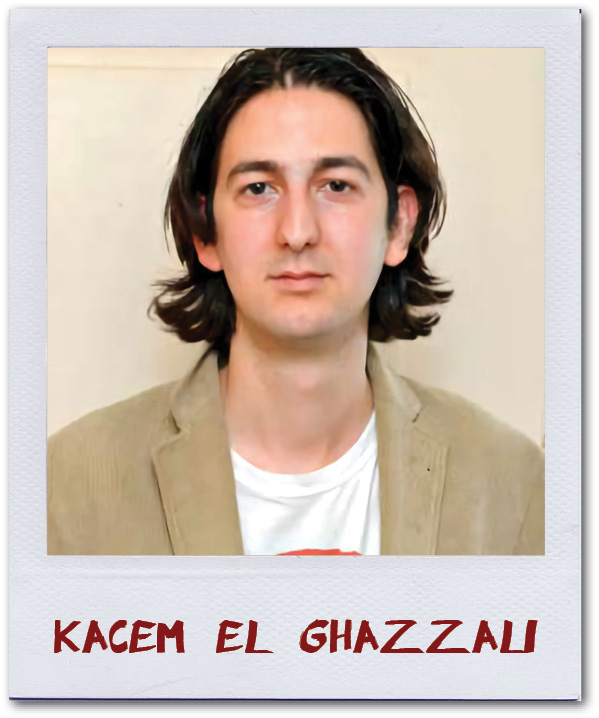 |
Kacem El Ghazzali, Morocco (now Switzerland), ran an influential blog about his atheism, decrying political Islamism, and questioning the presumption that children were born into Islam and could never leave. He received numerous death threats and was ostracised locally in 2010. Forced to flee the country, he has since gained citizenship in Switzerland. |
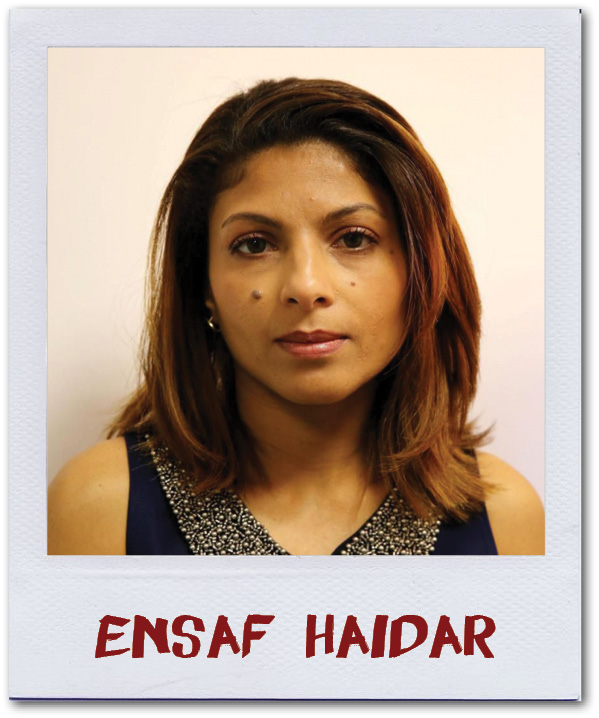 |
Ensaf Haidar, Saudi Arabia (now Canada), has campaigned tirelessly for the freedom of her husband, Raif Badawi, who has been imprisoned in Saudi Arabia since 2012. Badawi had been accused of running a “Saudi Liberal” blogging platform and writing arguments in favour of secularism and against clerical involvement in the state. Ensaf Haidar is president of the Raif Badawi Foundation for Freedom. She and her husband have both won several awards for their work in favour of freedom of expression. |
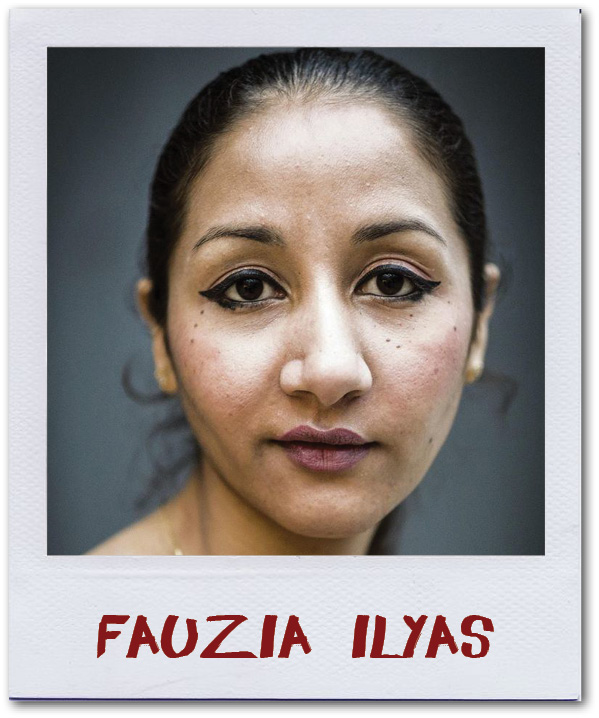 |
Fauzia Ilyas, Pakistan (now Netherlands), became an atheist after being coercively married to an older man. She eventually found fellow atheists online, but had to flee the country after her identity was exposed. She has worked with the Dutch Humanist Association, Humanistisch Verbond, to raise awareness of the plight of “non-believers” from Islamic countries. |
 |
Gulalai Ismail, Pakistan, has run an organization for women’s education and dedicated to empowering women’s lives in her home province. For this work she has been accused of working against Islamic belief. In 2018 she turned the tables on her blasphemy-accuser by taking him to court for incitement to violence. She has won numerous awards for her work with women and girls and her human rights activism. |
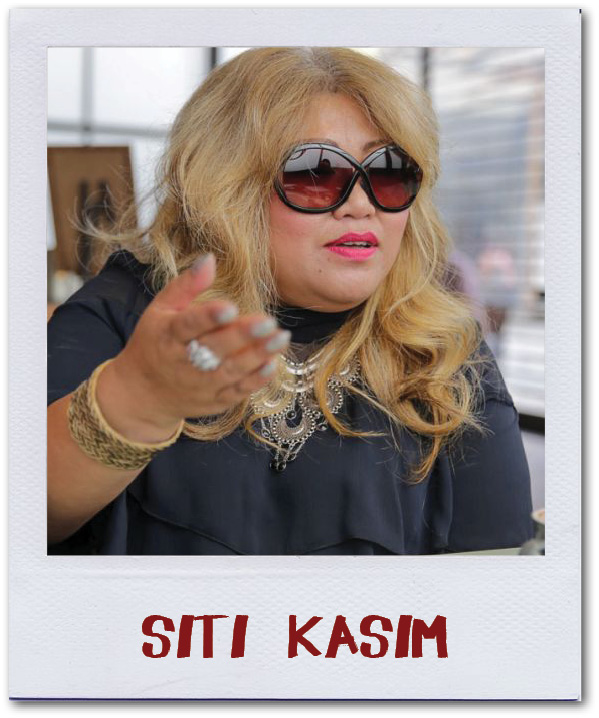 |
Siti Kasim, Malaysia, is a Malay Muslim lawyer and human rights defender, who has frequently stood up against hudud Islamic law which she considers “man-made” and a Wahhabi import. She has been regularly accused of blasphemy or undermining Islamic Malay culture. |
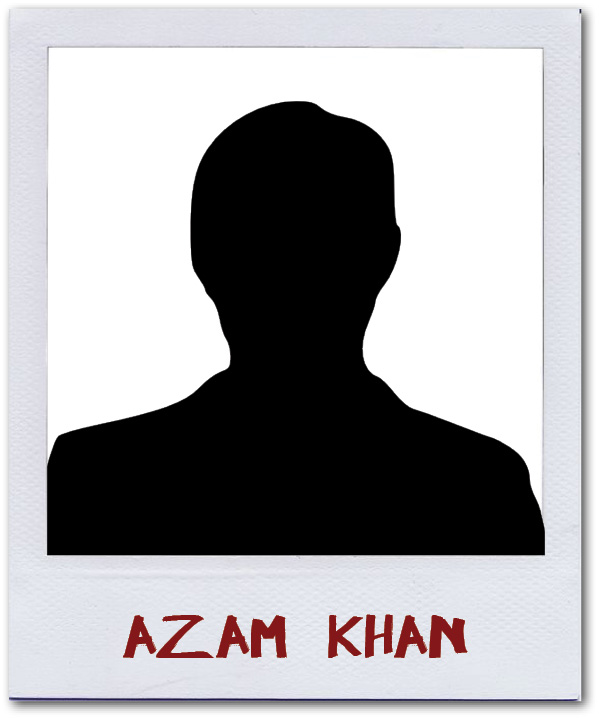 |
Azam Khan, Bangladesh (now abroad), is a Bangladeshi blogger and activist who was forced to leave his home country after being named as a target by Islamists, who had also named and killed several others humanist or atheist bloggers. He left the country after his home was threatened by strangers demanding to be let in. |
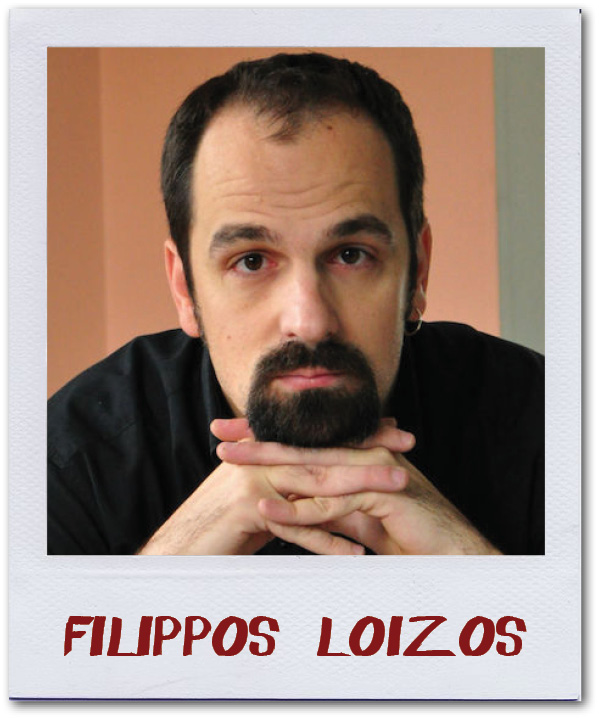 |
Philippos Louizos, Greece, was put on trial for authoring a Facebook page depicting a revered Orthodox monk, Elder Paisios, as a character he called “Elder Pastitsios”, making a pun on the monk’s name (Pastitsio is a local dish made from pasta). He was convicted in January 2014 and handed a suspended sentence of ten months, which was later quashed on a technicality. His case was widely reported in Europe as showing the absurdity of prosecuting people over trivial satire on social media. |
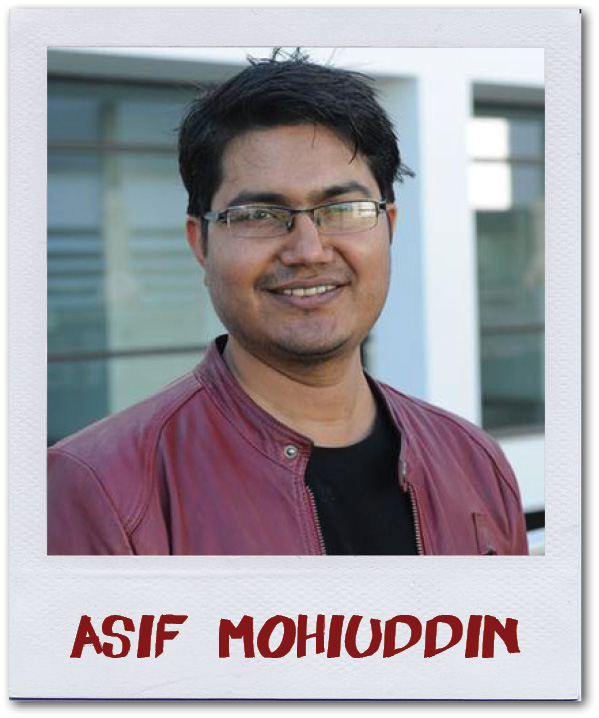 |
Asif Mohiuddin, Bangladesh, blogger and social activist, was attacked in January 2015 by members of an Islamist militant group armed with machetes, and was fortunate to survive. His friend Ahmed Rajib Haider was killed a month later in a very similar attack. In the aftermath of these attacks, with attention drawn to his blogs, police arrested Asif himself for “hurting religious sentiments”. After some time in jail Asif escaped the country. Several other friends and fellow bloggers who spoke out about extremism or advocated secularism and human rights, would be killed in the months and years that followed. |
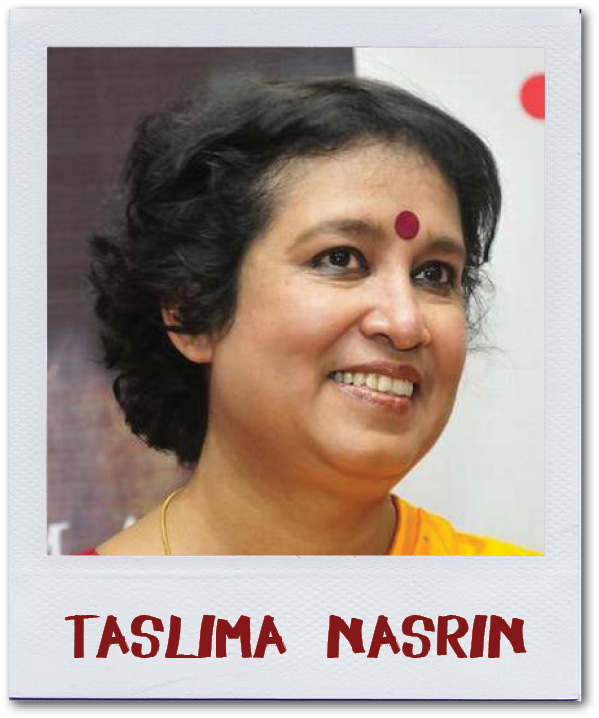 |
Taslima Nasrin, Bangladesh (now India), is a former medical doctor, a poet and author, with a particular interest in feminism and the suppression of women within religion. She was forced into exile from Bangladesh in 1994 after her works and articles prompted threats to her life and a blasphemy prosecution. She has faced protests in various cities and death threats ever since. |
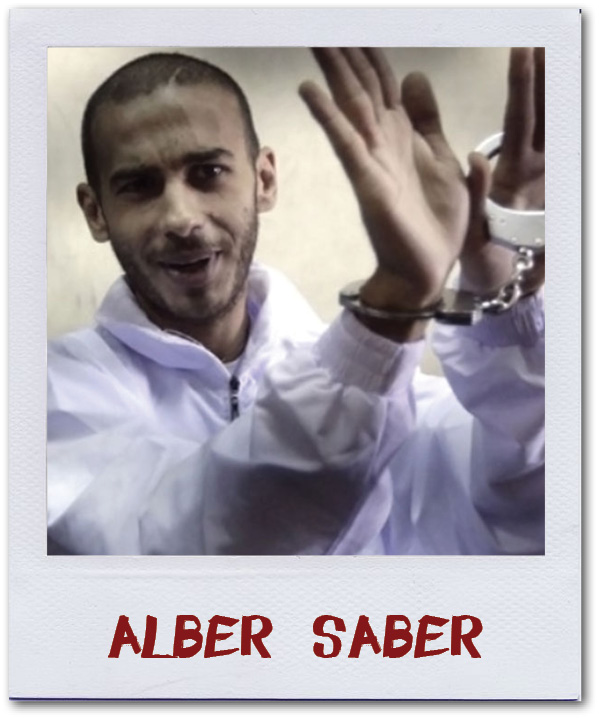 |
Alber Saber, Egypt (now abroad), was arrested in September 2012, after a mob formed outside his home and demanded his arrest for “insulting religion”. Saber was a prominent activist for secular democracy in Egypt, and operated the Egyptian Atheists Facebook page. He was reportedly beaten after a prison guard announced his charges to others sharing his cell. He was sentenced to three years in prison, and left the country seeking asylum after he was released on bail. He now lives in Europe. |
 |
Mohamed Salih Aldsogi, Sudan (now Uganda), took the unusual and courageous step of petitioning the courts to change the religion listed on his national identification card, replacing ‘Islam’ with ‘atheist’ or ‘non-religious’. For this brief activism, he was quickly arrested for “apostasy”, which carries a possible death sentence in Sudan. The case was dismissed following an involuntary psychiatric assessment and Salih was released. Given the threats against his lie, Salih fled to Uganda. |
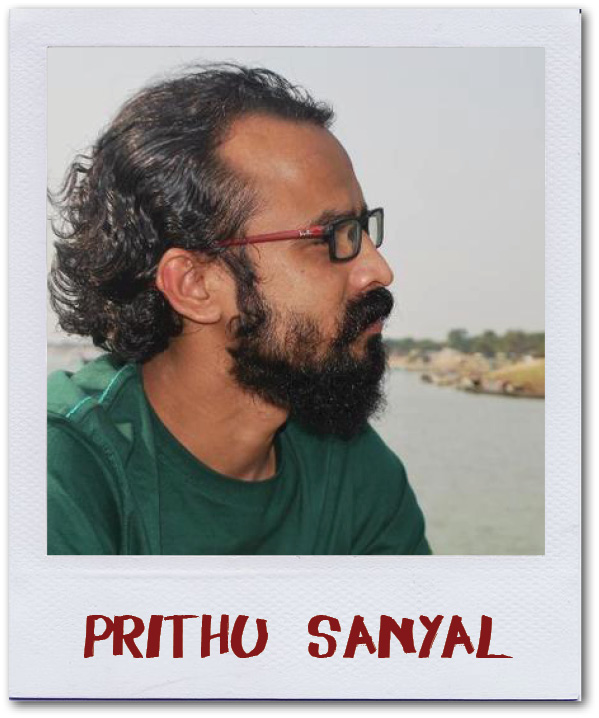 |
Prithu Sanyal, Bangladesh (now Germany), wrote a blog under this pen name in Bangladesh, challenging religious hegemony and human rights abuses. He was listed as a target by extremists and threatened with death, and fled to Europe. |
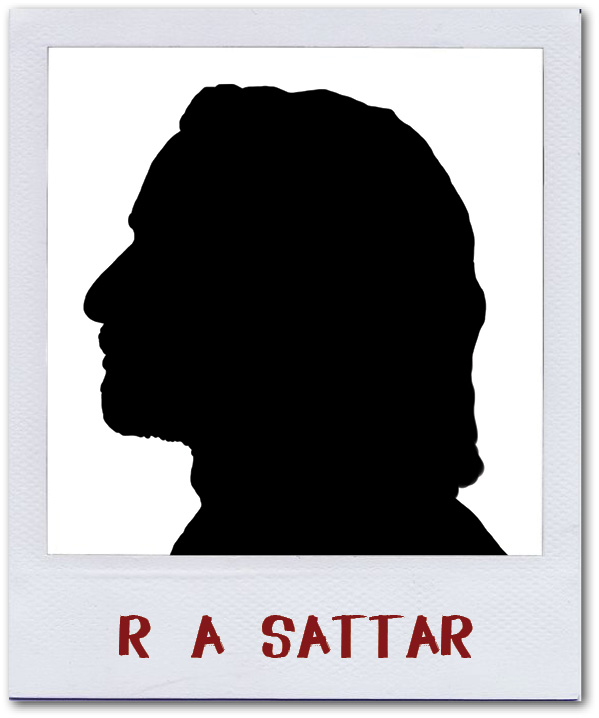 |
R A Sattar, Pakistan (now New Zealand), was involved in online humanist activism, but when his connection became known locally he was reported to the police for “blasphemy”. He was warned that he must relocate or risked mob violence or arrest. He is now seeking asylum in New Zealand. |
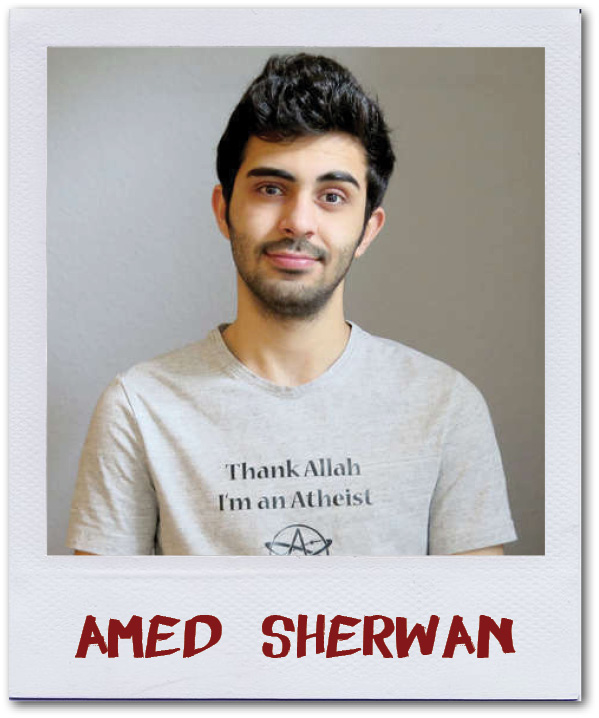 |
Amed Sherwan, Iraq (now Germany), as a 15-year old atheist was imprisoned in solitary confinement and tortured by electric shock. He had initiated discussions about God after undertaking “extracurricular” reading, and under pressure from the local community his father reported had Amed to the authorities. He was detained for 13 days. Now living in Germany, Sherwan is a prominent voice against political Islamism. However, after an equality campaign in which he used the slogan “Allah is Gay”, he has received numerous death threats even in his adopted home. |
 |
Malaysian Atheists and Secular Humanists, Malaysia, is an organisation advocating for the public’s right to freedom of belief without fear of violence or legal punishment, and working to promote and educate the Malaysian public on the values of humanism. Several atheists from Kathmandu received death threats and were denounced by government officials in 2017 for attending and photographing themselves at an atheist meetup. |
 |
Thessaloniki Pride, the organizing committee, Greece; six members of the organizing committee for a Pride march in Thessaloniki faced “blasphemy” charges in 2017. Their official posters for the event declared “Love each other”. An unofficial variant which borrowed from their branding but featured a crucifix, read “He was crucified for us too”. Charges were dropped when it became clear that they had not produced the unofficial poster, though the authorities continued to search for its designer. |
The IHEU is crowdfunding for its work with individuals at verified risk of persecution; advocating for human rights and highlighting cases where humanists have been persecuted or prosecuted, at the United Nations Human Rights Council and other international forums; we research, record and monitor discrimination and persecution against the non-religious in our ground-breaking Freedom of Thought Report; and with the support of our Member Organizations around the world, we unite the global humanist movement: providing information, sharing best practice and acting as a hub and support network for humanists everywhere. Please support our work, visit the Humanists At Risk crowdfunding campaign.
